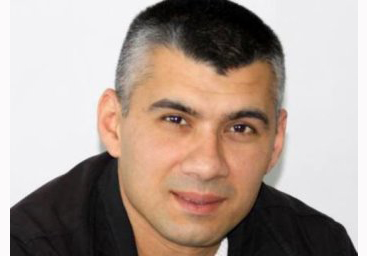The ICJ today expressed its concern at the prosecution and conviction of lawyer Shukhrat Kudratov by Dushanbe City Court on charges of fraud and bribery.
On 13 January, Judge Tokhirbek Musobekhzod pronounced the conviction, sentenced the lawyer to nine years of imprisonment in a strict regime prison and banned him from working as a lawyer for two years after his release.
Shukhrat Kudratov (photo) denied all the allegations against him, including allegations of attempted bribery in the case of his client, Amirali Sulamayev.
The ICJ is concerned that his conviction may amount to a reprisal for his representation of another client, Zaid Saidov, former Minister of Energy, who was sentenced in 2014 to 26 years’ imprisonment on a number of criminal charges.
Before his arrest, Shukhrat Kudratov and another lawyer for Zaid Saidov reported that they had faced threats and intimidation and were warned that they should drop the case of Zaid Saidov.
Another lawyer for Zaid Saidov, Fakhriddin Zokirov, was also arrested on charges of fraud, but was released as a part of an act of amnesty in November 2014.
The ICJ is concerned that the conviction of Shurkhrat Kudratov may have a chilling effect on the independence of all lawyers in Tajikistan and on their capacity to protect the human rights of their clients.
Under the UN Basic Principles on the Role of Lawyers, lawyers must be able to exercise their functions without intimidation, hindrance, harassment or improper interference.
Moreover, the UN Basic Principles explicitly guarantee that lawyers must not be identified with their clients and their clients’ causes as a result of discharging their functions.
They stipulate that the State should guarantee in practice that no lawyer suffers or is threatened with, prosecution or administrative, economic or other sanctions for any action taken in accordance with recognized professional duties, standards and ethics.
The Basic Principles are an important source of guidance in relation to the international legal obligations of Tajikistan under, for instance, the International Covenant on Civil and Political Rights, a human rights treaty to which Tajikistan acceded in 1999.
The ICJ understands that Shukhrat Kudratov’s conviction will soon be appealed before the Supreme Court of the Republic of Tajikistan.
The ICJ calls on the authorities of Tajikistan to ensure that the appeal is conducted in a manner that is in line with Tajikistan’s international human rights law obligations, including the right to a fair trial.
The ICJ will continue closely monitoring the case.
Tajikistan-Statement Kudratov-News-Webstory-2015-RUS (full text in pdf)




